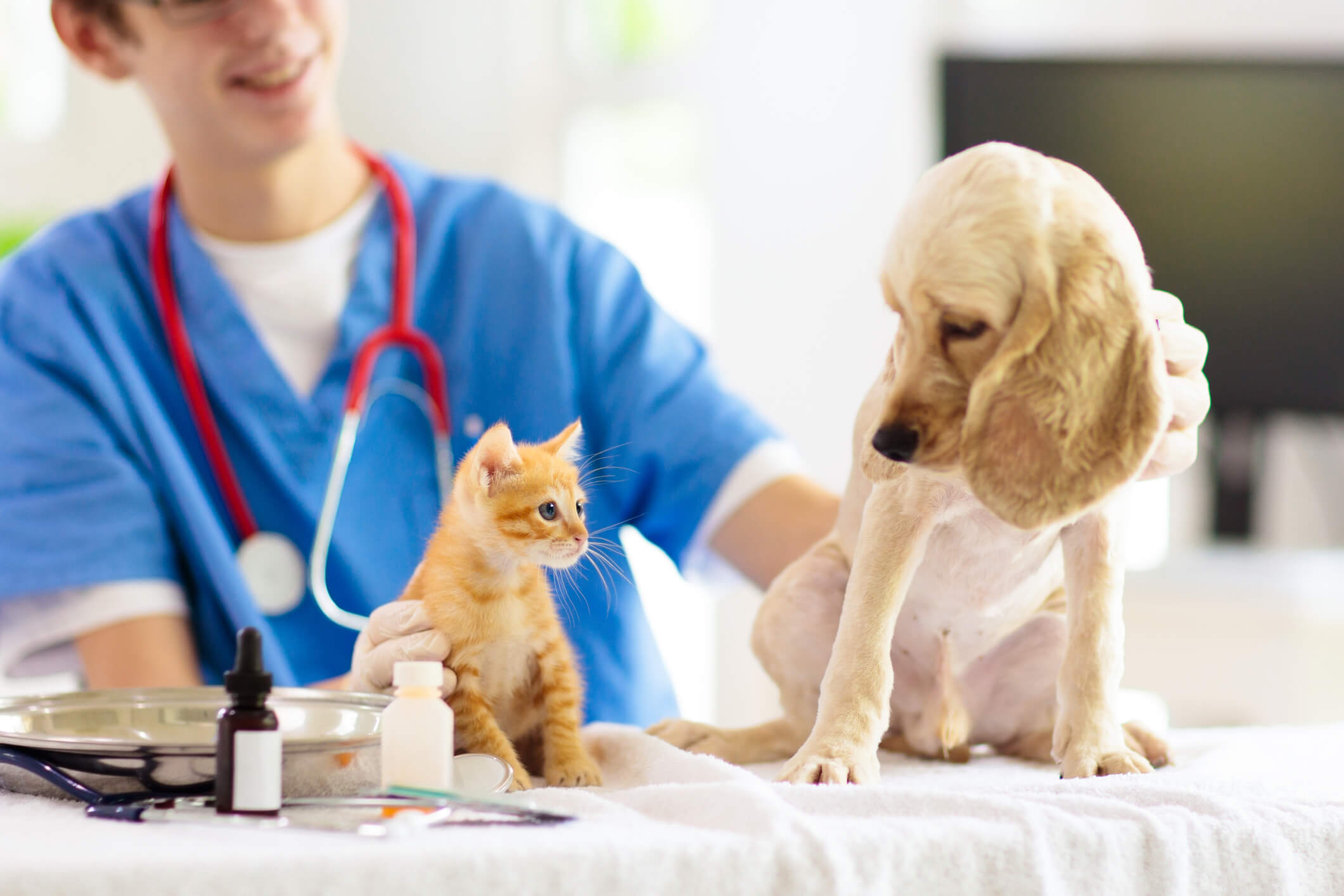
Why Omega 3s are So Important for Puppies & Kittens
Pets need different diets for different stages of life. Pet parents who have just adopted a puppy or kitten have to pay extra close attention to what’s going in their food bowl. Food lays the groundwork for a young pet’s health—not just for the first few months, but for the rest of their lives.
Among all the other nutrients they need, omega-3 fatty acids are some of the most important. Here’s a quick rundown of what they are and the benefits they provide for your puppy or kitten.
What are omega-3 fatty acids?
Omega-3 fatty acids are components of fat that are derived from cold-water fish, nuts, plant oils and chia seeds. Omega-3s are considered an essential fatty acid because they don’t naturally occur in dogs and cats. Since your furry friend can’t produce omega-3s on their own, they have to get it from food or dietary supplements.
There are two types of omega-3 fatty acids: long-chain and short-chain. Long-chain omega-3 fatty acids include eicosapentaenoic acid (EPA) and docosahexaenoic acid (DHA). Both are abundant in shellfish and cold-water fish, and DHA can also be found in algae. Vets recommend this type of omega-3 fatty acids because they produce more noticeable health benefits.
Short-chain omega-3 fatty acids only include alpha-linolenic acid (ALA). ALA is exclusively found in plants—specifically flaxseed, chia seeds and canola oil.

Benefits of omega 3s for young pets
Omega-3 fatty acids support overall health at every stage of a pet’s in life. However, the fatty acids are especially important for puppies and kittens because they aid in proper growth and development.
Here’s how omega 3s can help your brand new furry companion grow big and strong.
- Cognitive function: Young pets need omega-3 fatty acids to develop good brain health. Puppies and kittens are constantly learning about the world around them, and omega-3s can help form new connections in the brain. Omega-3s improve focus, memory and the ability to learn, all of which are necessary for teaching them commands and house rules.
- Vision and eye health: The first few months are crucial for puppies and kittens. Their bodies are growing faster than they will at any other stage in life. Omega-3 fatty acids can assist with their growth, especially as it pertains to their eye health. Omega-3s help develop nerve cells in the eyes, allowing young pets to start life off with strong vision.
- Immune system: Puppies and kittens are more susceptible to getting sick because they have underdeveloped immune systems. Omega-3 fatty acids help young pets develop immunity at a faster rate, reducing the risk of infectious diseases like intestinal worms and kennel cough. A strong immune system is important among young pets because it’s harder for them to fight off infectious diseases.
- Healthy skin: Omega-3s play a big role in skin health because they reduce inflammation. Their anti-inflammatory properties help alleviate itching and swelling, especially in young pets with food or environmental allergies. Omega-3s also form a protective layer that guards against dry, flaky skin. These fatty acids soothe and hydrate at the same time to create skin that will stay healthy well into adulthood.
- Soft and shiny coat: Omega-3 fatty acids can help a young pet’s coat look and feel good. Similar to their effect on the skin, omega-3s lubricate hair strands to prevent them from drying out. The fatty acids guard against brittleness and help your pet grow a thick, full coat. The hydration boost will also make their fur glossy and soft to the touch.
Good sources of omega-3 fatty acids
Pet owners have several options for adding omega-3s to their young pet’s diet. You can incorporate a dietary supplement in the form of capsules or fish oil. Fish oil is the best option for picky eaters that don’t want to swallow a capsule. It easily mixes into their regular food and gives off a strong aroma that puppies and kittens will love.
Alternatively, you can purchase pet food that contains omega-3 fatty acids. Be sure to pick a formula that’s designed for young pets, as this will provide the right balance of nutrients for your growing puppy or kitten. Ask your vet for brand recommendations before switching to a new food.
The food that pets eat in their early years will influence their health later down the road. Puppies and kittens should begin life with a well-balanced diet, and that involves supplementing their food with omega-3 fatty acids. Once they’re all grown up, continue giving your furry friend omega-3s for optimal health that lasts a lifetime.


